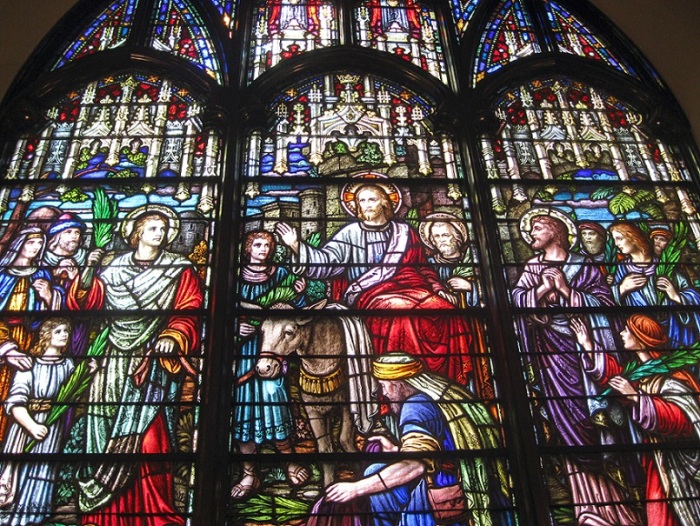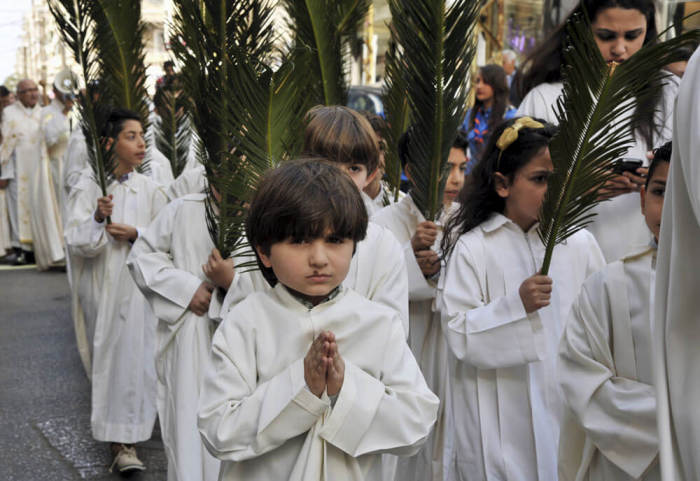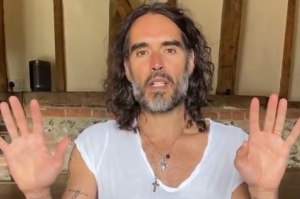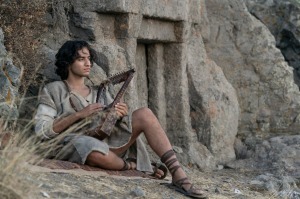What Is Palm Sunday? How Churches Celebrate the Christian Holiday

Christians and churches around the world are celebrating Palm Sunday today, to commemorate Jesus' triumphal entry into Jerusalem before His crucifixion and resurrection, with symbols such as palm crosses, which are not mere rituals but refer to deep spiritual truths.
On Palm Sunday, also called "Passion Sunday," which falls on the Sunday before Easter, Christians carry palms and other branches to the church and hold processions, as the New Testament records that people covered the path of Jesus with palm branches as He returned to Jerusalem knowing that He was going to be crucified.
Matthew 21:1-11 is read out and explained to congregations on Palm Sunday.
"As they approached Jerusalem and came to Bethphage on the Mount of Olives, Jesus sent two disciples, saying to them, 'Go to the village ahead of you, and at once you will find a donkey tied there, with her colt by her," the passage reads.
"Untie them and bring them to me. If anyone says anything to you, say that the Lord needs them, and he will send them right away.' This took place to fulfill what was spoken through the prophet: 'Say to Daughter Zion, 'See, your king comes to you, gentle and riding on a donkey, and on a colt, the foal of a donkey.' The disciples went and did as Jesus had instructed them. They brought the donkey and the colt and placed their cloaks on them for Jesus to sit on. A very large crowd spread their cloaks on the road, while others cut branches from the trees and spread them on the road. The crowds that went ahead of him and those that followed shouted, 'Hosanna to the Son of David!' 'Blessed is he who comes in the name of the Lord!' 'Hosanna in the highest heaven!' When Jesus entered Jerusalem, the whole city was stirred and asked, 'Who is this?' The crowds answered, 'This is Jesus, the prophet from Nazareth in Galilee.'"
John 12:13 is also one of the verses read on the occasion. "So they took branches of palm trees and went out to meet him, crying out, 'Hosanna! Blessed is he who comes in the name of the Lord, even the King of Israel!'"

After the Palm Sunday service, Christians bring palm or other leaves, and crosses made from them, to their homes as a symbol of their acceptance of Jesus on the thrones of their lives. The palm represents peace and triumph, and it was a custom at the time to honor respected people with palm fronds. However, since procuring palms may not be possible for all, branches from many other trees, including box, yew, willow and olive, are also used in the celebration.
Jesus' coming into the city riding on a donkey was also significant, as it was traditionally seen as a call for peace, rather than war.
Jesus also demonstrated His humility by doing so. As David Mathis, the editor of the desiringGod website, writes, "This unrecognized prince has a rightful claim to the throne of his people as the heir of their most celebrated king. And yet he rides in manifest humility, on the back of a donkey's colt — like no other ruler in the first century, or the twenty-first century, would dare stoop to do."
However, the same crowd that welcomed Jesus turned against Him at the time of His crucifixion. Evangelist Billy Graham once explained why.
"One reason the crowds turned against Jesus was because He refused to be the kind of king they wanted — a political and military leader who would free them from the hated Roman government," Graham wrote on his website. "Roman soldiers had occupied their land for decades, and they hoped Jesus would lead them in a successful revolt."
Jesus made clear to them that His goal was different.
"God had another purpose for Him — and that purpose was far greater than any mere political or military victory. His goal was to establish another kingdom — the Kingdom of God," Graham continued. "This, He taught them, wasn't to be a political kingdom, but the rule of God over our hearts and minds — and ultimately, over the whole universe. To the Roman governor, Pontius Pilate, He declared, 'My kingdom is not of this world. If it were, my servants would fight…. My kingdom is from another place' (John 18:36)."
Graham added: "How could this happen? It could happen only if sin and death and Satan were defeated — for these keep God's Kingdom from becoming a reality in our lives. And how could they be defeated? Only by Christ's death and resurrection for us — for by His death and resurrection Jesus Christ conquered sin and death and Satan."
Graham concluded by asking the readers these questions: "Where would you have been during Jesus' final days? Would you have been in the crowd demanding His death —or would you have been among the minority who remained true to Him? And are you true to Him today?"





























